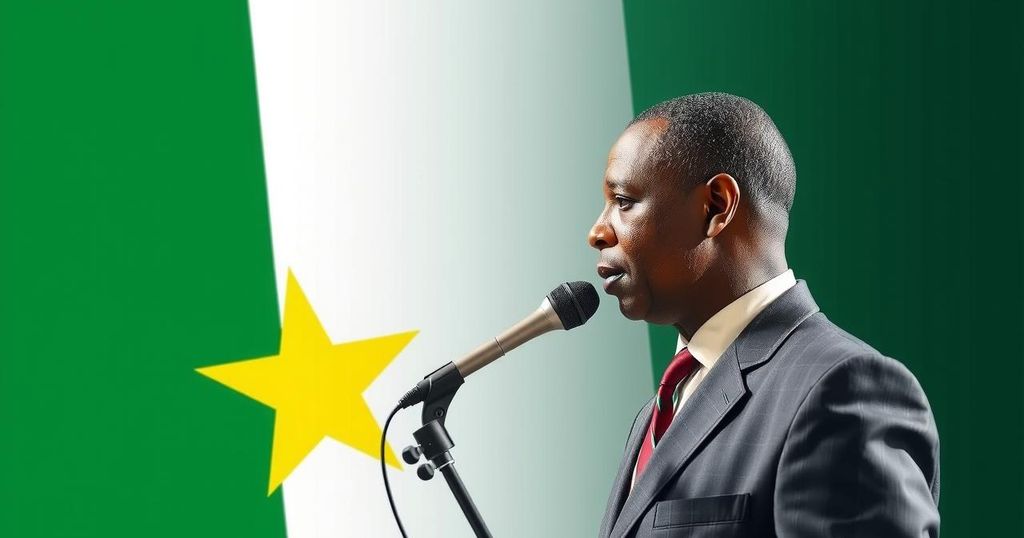Senegal’s recent parliamentary election closed on Sunday, pivotal for President Faye’s reform agenda. With over 7 million voters choosing 165 lawmakers, Faye’s party lacks a majority, hindering promised changes. High youth unemployment and unrest frame the election, amid concerns of political violence and economic challenges.
On Sunday, polls in Senegal closed for a parliamentary election that could determine the capacity of President Bassirou Diomaye Faye to enact promised reforms. Over 7 million registered voters were tasked with selecting 165 lawmakers for the National Assembly, where Faye’s party, PASTEF, currently lacks a majority. Following his March election, Faye has faced obstacles in pursuing reforms aimed at anti-corruption efforts and optimizing the distribution of natural resources amidst criticism of foreign exploitation. Faye, who emerged victorious in the presidential election with 54 percent of the vote despite a backdrop of imprisonment for political motives, dissolved the opposition-led parliament in September to facilitate this snap legislative election. His party is in competition with the opposition coalition, Takku Wallu, spearheaded by former President Macky Sall, as well as numerous other political factions. Voting commenced at 8 a.m. and concluded at 6 p.m., with provisional results anticipated by Monday morning, while the definitive tally will follow later in the week. Faye’s political future hinges upon securing 83 seats to establish a majority in the assembly; analysts predict a favorable outcome for PASTEF based on current sentiment and popularity. The socio-economic conditions in Senegal, especially among the youth, are dire, with over 60 percent of the population under 25 facing rampant inflation and limited employment opportunities. This discontent has fueled a narrative of change, as highlighted by a young student’s sentiment that the upcoming election could drastically impact their ability to find suitable work and thrive locally rather than seeking opportunities abroad. The election campaign has been marred by incidents of violence between rival political factions, including the torched headquarters of an opposition party and physical confrontations across the country. In a concerning development, Prime Minister Ousmane Sonko, who is affiliated with Faye, condemned attacks on their supporters while later urging for peaceful conduct. Faye personally called for unity and respect for election outcomes, emphasizing the necessity of maintaining Senegal’s democratic reputation. Despite Senegal’s longstanding image as a stable democracy in a region beset by political unrest, the recent controversies surrounding the election process and the treatment of political prisoners have posed significant challenges. The release of these prisoners, including Faye and Sonko, prior to the elections, came after months of unrest, underscoring the tensions leading to this pivotal moment in the West African nation’s political history.
Senegal is at a crucial juncture as it navigates the complexities of governance, youth discontent, and a turbulent political landscape. The recent elections are pivotal for President Bassirou Diomaye Faye, who seeks to implement ambitious reforms following his election earlier this year. His party, PASTEF, faces challenges in the National Assembly, aiming for a majority to pursue its agenda against a backdrop of significant public unrest and economic challenges that have intensified disillusionment among the youth population.
The parliamentary elections in Senegal represent a critical moment for President Bassirou Diomaye Faye and the future of his reform agenda. His party’s ability to secure a legislative majority will be essential to address pressing issues, including corruption and economic inequality. As the country grapples with political violence and economic strain, the outcome of this election will significantly influence the trajectory of Senegal’s democracy and the wellbeing of its youthful populace.
Original Source: www.pbs.org






